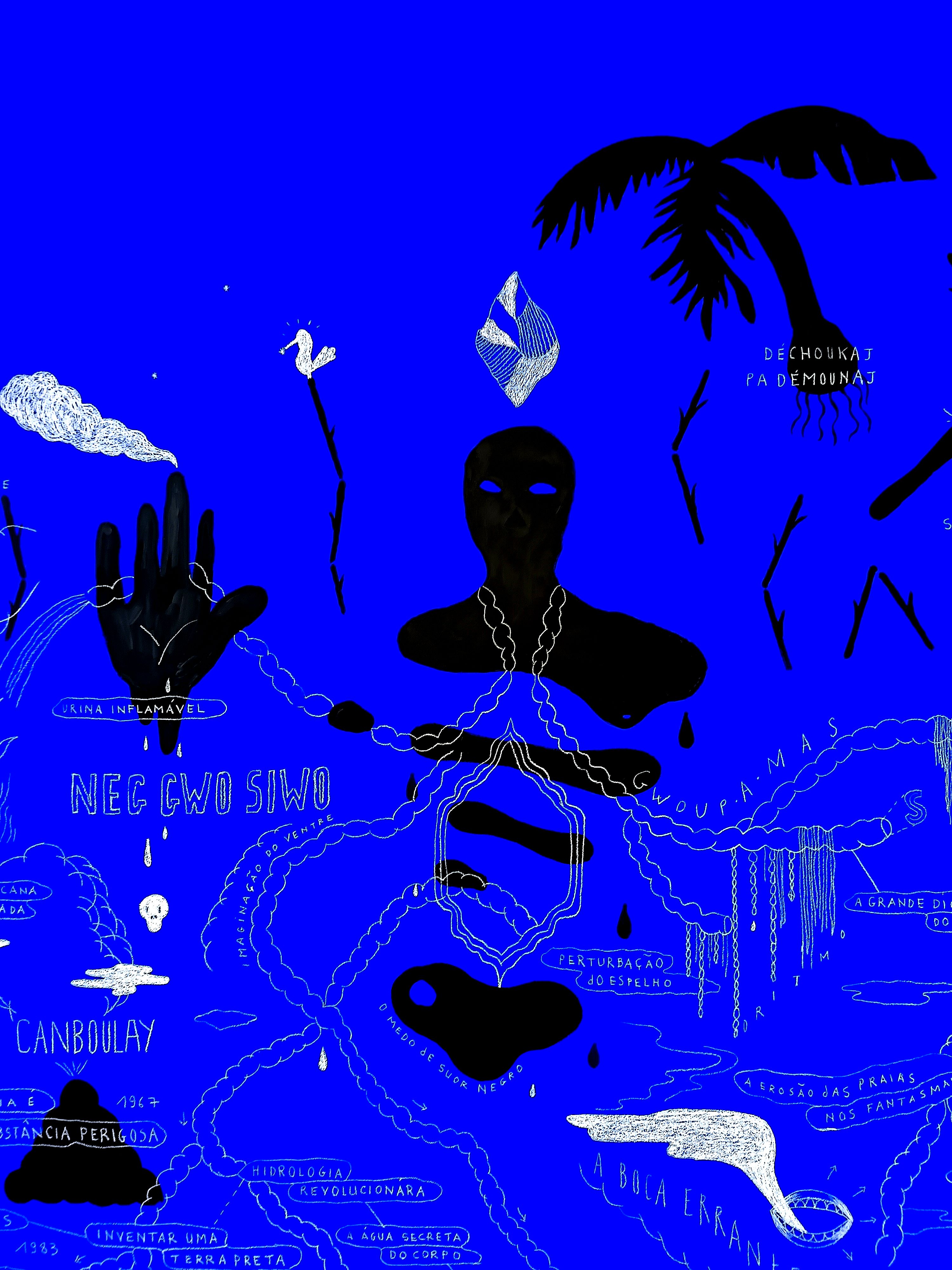Trafic de Traditions
Olivier MarboeufDefending one’s traditions has become the rallying cry of the conservative and xenophobic project of Western societies, in response to the chaotic whirlwind of a globalized economy whose roots lie in the great modern colonial enterprises. The most voracious predators of fossil capitalism have ceaselessly advanced this grand narrative of a “clash of civilizations,” scripting the threat of barbarian invasions supposedly pounding jealously at the gates of the Global North’s democratic sanctuaries.
As implausible as this script may be, as crude as this diversion might seem—one that magically turns the lords of extractivism into protectors of fragile, threatened peoples—this narrative has proven devilishly effective. Not so much because of its intrinsic qualities, but due to the massive resources poured into militarizing traditions by the very actors who have systematically destroyed languages, lands, autonomous know-how, diverse life forms, and collective attachments to manufacture their docile army of consumers.
This overinvestment in excess and delusional narrative has caught off guard all those who believed a world emancipated from the violences of petro-patriarchy could be summoned by the mere magic of speculative storytelling. The cultural war has indeed changed in tone, in form, and in terrain. And it seems increasingly difficult to ignore that this is a harsh battle. As American philosopher Donna Haraway has stated, “we urgently need new stories.”*
While this proposition must remain central to our concerns, we must now admit that stories alone are not enough, however desirable they may be. It is also necessary to practice them—and for that, to reclaim territories, spaces, and sovereign sites where such stories can be active, capable of (re)producing livable worlds to be experimented with and maintained in the face of capitalist catastrophe.
We must therefore also prepare ourselves—without naïveté—to defend what we care about, what we stand on, and those who care for us, who stand thanks to us. In this perspective, it would be dangerous to abandon the notion of tradition to the sorcerer’s apprentices of fascism, just as it would be to leave the idea of land to the imaginations of nation-states and solid borders, rather than engage in cultural practices aimed at forging reciprocal relationships with a land — a land, un terroir, un péyi — and enriching it for the future beings who will inhabit it after us. Beings who may be visible or invisible, human or non-human.
This Think Zone will aim to collectively study the different ways in which traditions are produced and reproduced. It is based on the hypothesis that conservative approaches operate within morbid ecologies where tradition is reified and turned into heritage—an object of memory commerce—rather than seen as a place where imaginative possibilities and spaces of emancipation can be re-enacted. The mask in the display window no longer dances.
Our exploration of certain major traditional manifestations will show us that there still exist zones out of control, places where an archive resists all domestication and narrative reordering. This Think Zone will therefore be an opportunity for a critical approach to the notion of the archive and conservation in Western museography, and for an exploration of alternative, living modes of transmission based on different forms of repetition — rehearsals — inspired by minor carnivalesque traditions and various creative tactics of resistance.
Within this framework, the aesthetic forms we will explore or create together — from images to mental maps, adornments, performances, and narratives — will be considered as cosmovisions, i.e., gestures tied to situated worlds that they help sustain in return. And we will see that these worlds can be mobile and transplantable, raising the question of traditions of hospitality and the conditions of hybridization.
This will lead us to a concrete and vigilant interrogation of the risks of extractivism and cultural appropriation within the Western art sphere. Thinking our practices through a decolonial lens in action will mean maintaining a strong connection between the artistic gesture and the kinds of reciprocal attachments it fosters with the context in which it emerges—its activities, geology, landscapes, fauna and flora, and the modes of life, both local and transplanted.
Starting from a collection of materials brought by participants based on their own social experience — photographs, film excerpts, texts, stories, costumes, body practices, spatial occupations — we will develop a practical study of the traditions carried/incorporated by the group. The second semester will be dedicated to the creation of new, resistant, and hospitable traditions, living archives of this composite land we care for, and to developing the conditions and sites of their practice, as well as their methods of transmission over time.
- From Story Telling for an Earthly Survival, a film by Fabrizio Terranova (2016)
